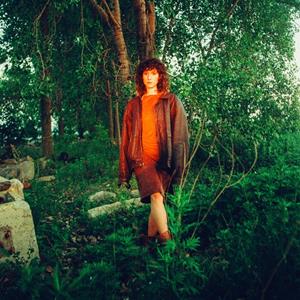Squirrel Flower Tickets
The Glad Cafe, Glasgow.

This event is for 18 and over - No refunds will be issued for under 18s.
More information about Squirrel Flower tickets
Squirrel Flower is the witch rock project of Chicago (by way of Boston + Iowa) based musician Ella Williams. Before her new album Tomorrow’s Fire, Squirrel Flower might’ve been labeled something like “indie folk,” but this is a rock record, made to be played loud. As if to signal this shift, the album opens with the soaring “i don’t use a trash can,” a re-imagining of the first ever Squirrel Flower song. Williams returns to her past to demonstrate her growth as an artist and to nod to those early shows, when her voice, looped and minimalistic, had the power to silence a room. Lead singles “Full Time Job” and “When a Plant is Dying,” narrate the universal desperation that comes with living as an artist and pushing up against a world where that’s a challenging thing to be. The frustration in Williams’ lyrics is echoed by the music’s uninhibited, ferocious production. “There must be more to life/ Than being on time,” she sings on the latter’s towering chorus. Lyrics like that one are fated to become anthemic, and Tomorrow’s Fire overflows with them. “Doing my best is a full time job/ But it doesn’t pay the rent” Williams sings on “Full Time Job” over careening feedback, her steady delivery imposing order over a song that is, at its heart, about a loss of control. Closing track “Finally Rain” speaks to the ambiguity of being a young person staring down climate catastrophe. The last verse is an homage to Williams’ relationship with her loved ones — ‘We won’t grow up.’ A stark realization, but also a manifesto. To be resolutely committed to a life of not ‘growing up,’ not losing our wonder while we’re still here.